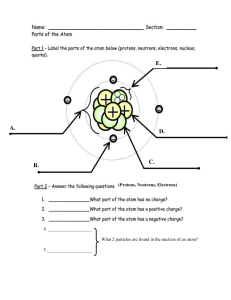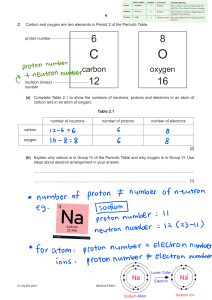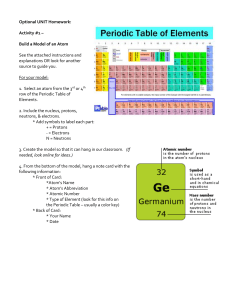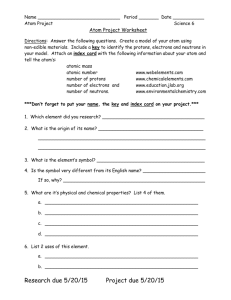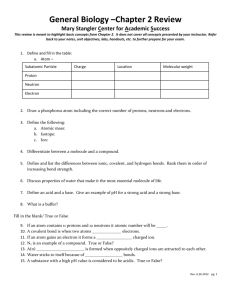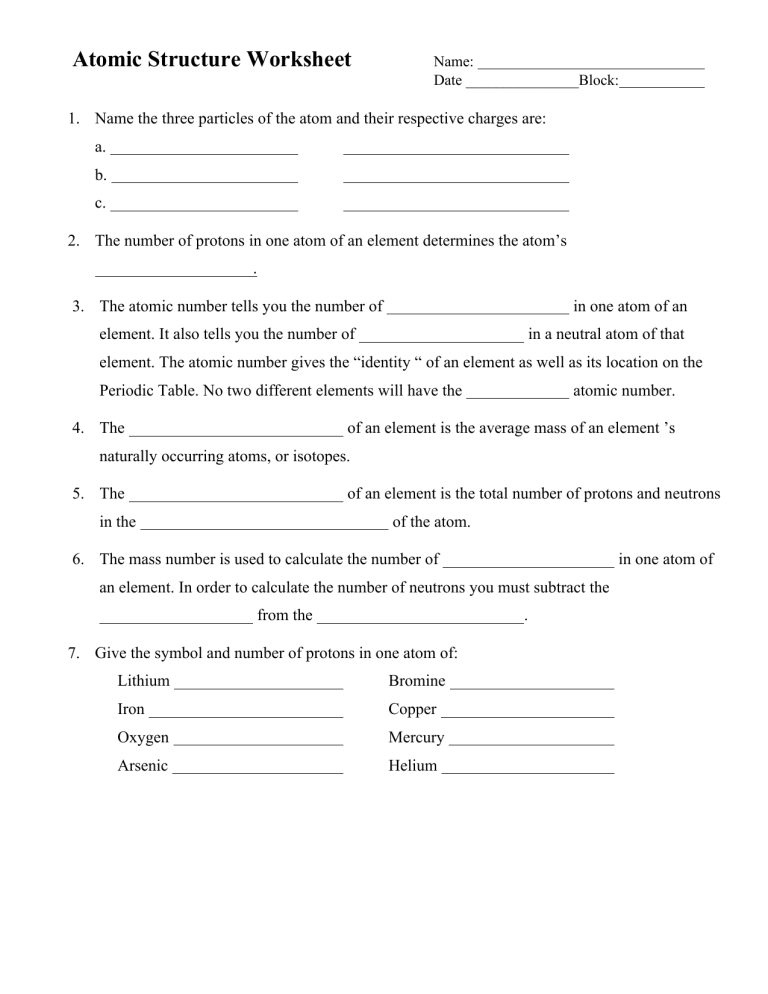
Atomic Structure Worksheet Name: Date _______________Block: 1. Name the three particles of the atom and their respective charges are: a. b. c. 2. The number of protons in one atom of an element determines the atom’s . 3. The atomic number tells you the number of in one atom of an element. It also tells you the number of in a neutral atom of that element. The atomic number gives the “identity “ of an element as well as its location on the Periodic Table. No two different elements will have the 4. The atomic number. of an element is the average mass of an element ’s naturally occurring atoms, or isotopes. 5. The of an element is the total number of protons and neutrons in the of the atom. 6. The mass number is used to calculate the number of in one atom of an element. In order to calculate the number of neutrons you must subtract the from the . 7. Give the symbol and number of protons in one atom of: Lithium Bromine Iron Copper Oxygen Mercury Arsenic Helium 8. Give the symbol and number of electrons in a neutral atom of: Uranium Chlorine Boron Iodine Antimony Argon 9. Determine the number of neutrons in one atom of the following elements. Show your calculations. Barium – 138 Sulfur – 32 Carbon – 12 Hydrogen – 1 Fluorine – 19 Magnesium – 24 Silicon - 28 Mercury – 202 10. Name the element which has the following numbers of particles. 26 electrons, 29 neutrons, 26 protons 53 protons, 74 neutrons 2 electrons (neutral atom) 20 protons 0 neutrons 11. If you know ONLY the following information can you always determine what the element is? (Yes/No). number of protons number of neutrons number of electrons in a neutral atom number of electrons
